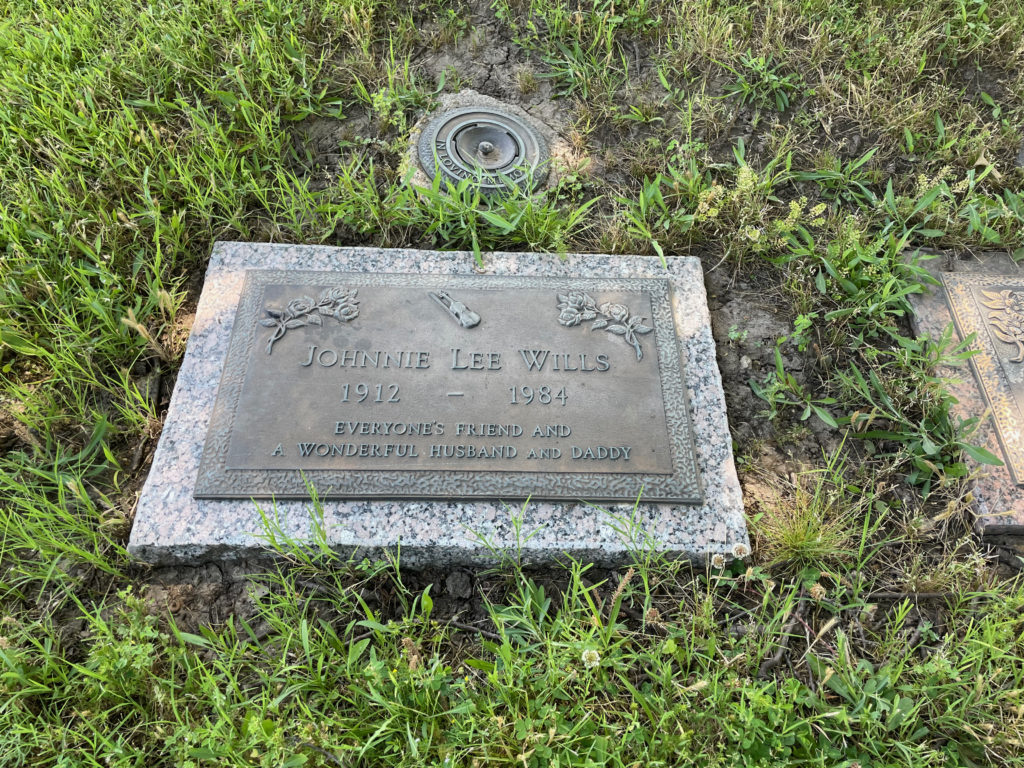Erik Visits an American Grave, Part 939
This is the grave of Johnnie Lee Wills.

Born in 1912 in Jewett, Texas, Wills was born into what became one of the most important musical families of the first half of the twentieth century. This was a poor family, sharecroppers, but one where music played a very important role. He had an older brother named Bob, who was the the king of western swing and one of the greatest and most brilliant figures in the entire history of American music. Johnnie Lee was not the genius of Bob. But he was good too. He joined the Texas Playboys in 1934 as a banjo player when the band started having a weekly gig on a radio station in Tulsa. This was Bob’s first band on his own; previously he had been in the Light Crust Doughboys, which was a corporate band that was common in these early years of country music. Johnnie Lee left the band in 1939, he founded his own group, the Rhythmairs. It didn’t last too long. He rejoined his brother’s band in 1940, but then when Bob went to California later that year, which would really take the Great One’s career from a regional artist to a legend, Johnnie Lee stayed in Oklahoma and started Johnnie Lee Wills & All The Boys. While he was mostly a fiddle player, he switched to banjo for that band, though still played the fiddle some too. He also appeared in the 1940 Tex Ritter vehicle Take Me Back to Oklahoma. His band was based in Tulsa, on KVOO, from 1940 until 1958, which is quite a run.
Wills remained an important regional figure in music through the 40s and into the 50s. He had a big hit with “Rag Mop” in 1949, which then became a standard in the genre. He also had a hit in 1952 with the Easter song “Peter Cottontail,” which he did not write. By the mid-50s, western swing had declined in the face of rock and roll even more than mainstream country music. Wills still had some regional audiences, but he was not making too much money at this point. He disbanded the band in 1964 and opened a clothing store. He did still intermittently record. The country revival movement of the 70s did spur some interest in the music of Wills and others and so some of the folk labels such as Rounder were happy to record him.
Wills died in 1984 in Tulsa. He was 72 years old.
Let’s listen to some Johnnie Lee Wills.
Johnnie Lee Wills is buried in Memorial Park Cemetery, Tulsa, Oklahoma.
If you would like this series to visit other western swing masters, you can donate to cover the required expenses here. Milton Brown is in Erath County, Texas and Spade Cooley is in Hayward, California. Previous posts in this series are archived here.


